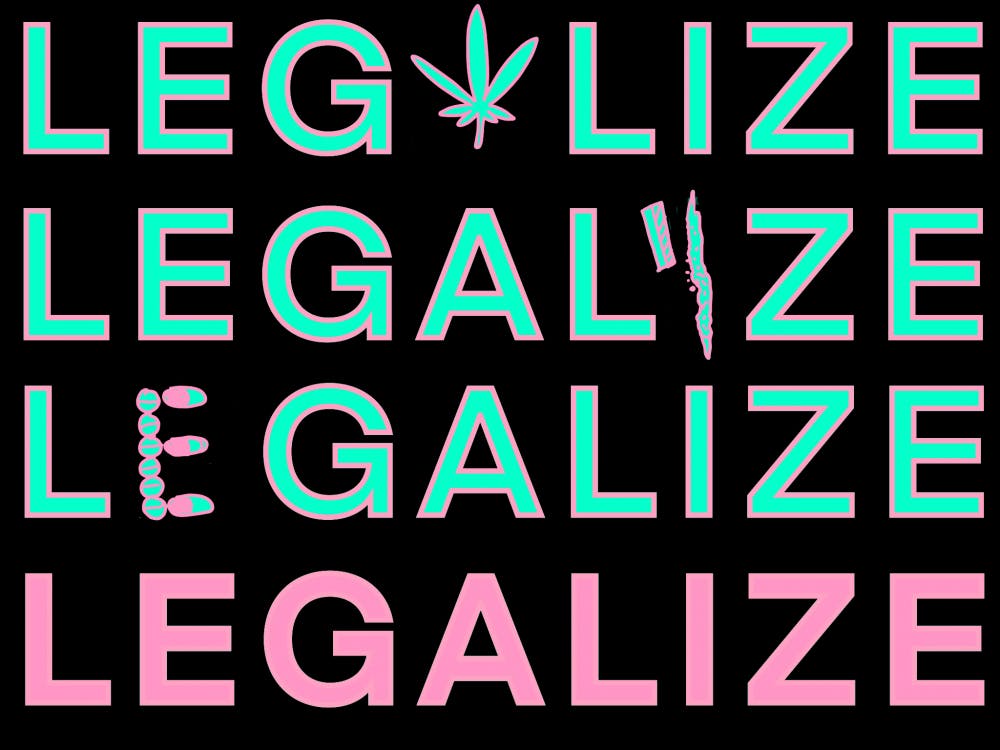Contributing to “the new Jim Crow,” the war on drugs in the U.S. has been one of the country’s greatest missteps in recent history. Billions of dollars have been wasted and thousands of lives have been ruined simply for using a substance.
Not only has the war on drugs massively failed in curtailing drug usage, but it began with the racist intent of stigmatizing and criminalizing communities by the Nixon administration.
The U.S. needs to learn from other nations such as Portugal, Norway and the Czech Republic and view drug problems as public health issues instead of a criminal ones.
Three major drug reforms the U.S. should enact right now are to release all nonviolent drug offenders (as well as retroactively expunging all drug-related charges), federally legalize marijuana for recreational use and decriminalize all drugs.
Decriminalization is not the same as legalization. Under this system, the sale of drugs remains illegal while possession of a substance changes from a criminal offense to an administrative offense.
After Portugal decriminalized all drugs in 2001, possession of a substance may incur a small fine or community service and a mandatory interview with a commission comprised of social workers, psychiatrists and attorneys in order to help the user receive potentially necessary rehabilitation.
People may think drug decriminalization would beget large spikes in usage and overdose rates, but this is actually not true. After Portugal decriminalized all drugs, the country saw usage and overdose rates decrease if not remain the same, as well as a massive decrease in drug-related crime.
The emphasis of drug laws in the U.S. needs to be evidence-based and led by experts on drug abuse and addiction.
Carl Hart is a professor of neuroscience and psychology at Columbia University, known for his research in substance addiction and abuse. In his TED talk, he stated: “80-90% of the people who use illegal drugs are not addicts; they don’t have a drug problem.”
The most groundbreaking research in drug addiction has to do with debunking the previous “anything for a hit” narrative.
In Hart’s research, he used what he calls “attractive alternatives” to the substance, where he offered methamphetamine and crack cocaine addicts the opportunity to take a hit of the drug or accept cash. The users accepted the cash almost every time.
This is also consistent with the “rat park” experiments by professor Bruce K. Alexander that showed when alternatives to the drug are present, like a sexually receptive mate or a sweet treat, the subjects are much less likely to engage in substance abuse.
In a free society, the government should not have to right to dictate what you put in your body, even if it is objectively harmful. Decriminalization is a major step for drug reform, but it is only one piece of the puzzle.
Decriminalization protects users from criminal offenses, but it still does not protect them with regard to the safety of the substances they are consuming.
The U.S. needs to fund a nationwide evidence-based drug education campaign which does not endorse the use of drugs, but explains the safety risks of substances and how to consume them safely if one chooses to do so.
Coupled with education, large amounts of funding must go toward research into the effects of illicit substances on the body and the safest way to transition to a legal, highly regulated, taxed marketplace. Pushing drug sales underground is incredibly unsafe for drug users and gives rise to powerful criminal drug syndicates.
The government needs to provide people with free drug purity testing and needle exchange programs and should help identify the root causes of drug addiction.
Preventing all drug use is impossible. As people have always used drugs, and they always will. The job of the government should be to help those who need it and not lock users up and throw away the key.






